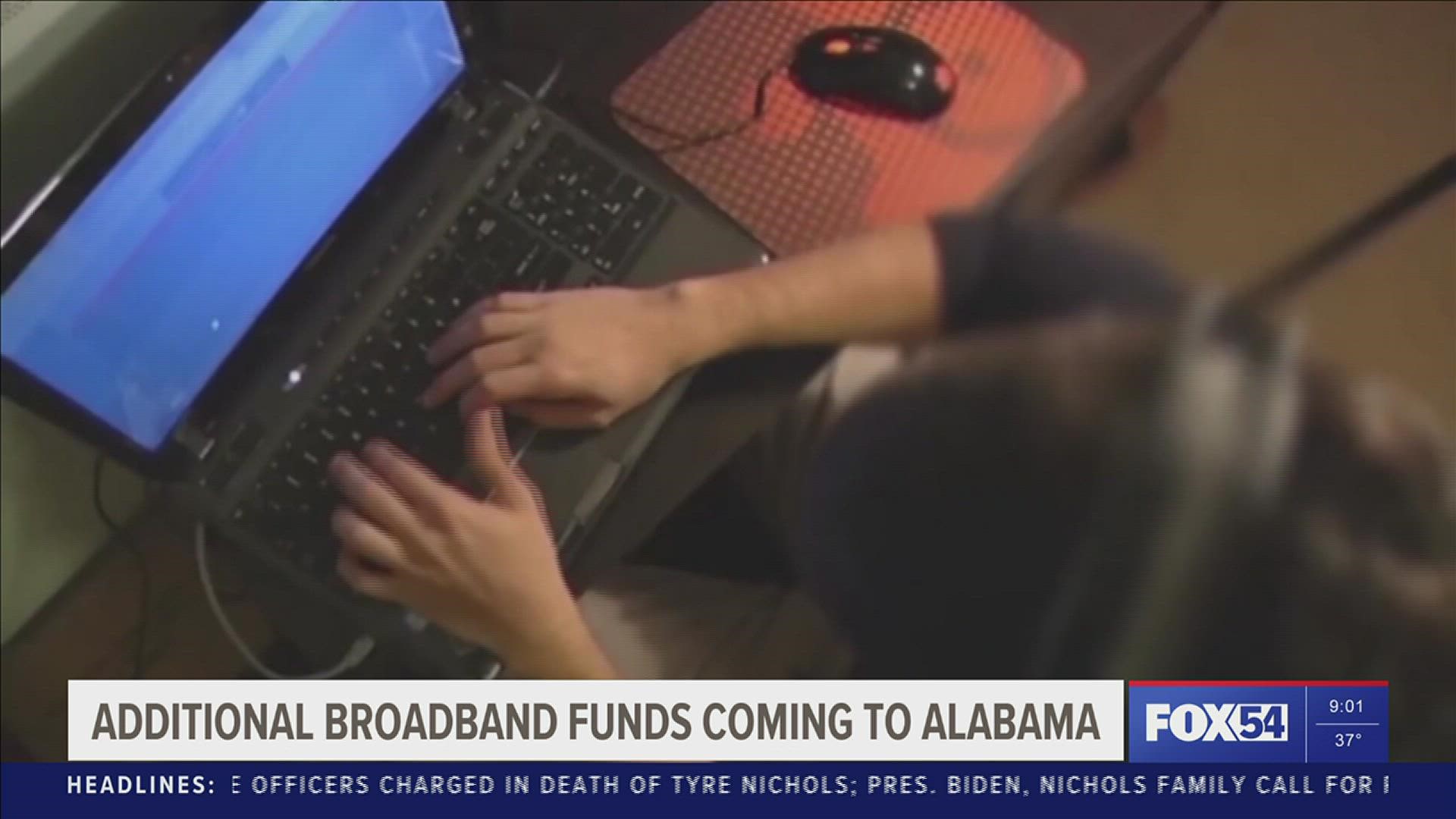ALABAMA, USA — During Thursday's White House and U.S. Treasury Press Call, the approval of Alabama's plan to invest $191.9 million in broadband infrastructure projects was announced.
In June the U.S. Treasury Department began awarding its first Capital Projects Funds as part of the American Rescue Plan.
Senior Advisor to the President and American Rescue Plan Coordinator, Gene Sperling, said during the press call, "the pandemic was a national teaching moment that reliable, strong, affordable internet access is an economic and educational necessity, not a luxury."
Since then, 30 states have been approved for funding, Alabama being one of them.
The state is approved to receive the almost $192 million of CPF funding that will go toward the Alabama Broadband Capital Projects Fund, extending access of broadband service to unserved areas.
The state estimates the funding will connect 55,000 households and businesses to high-speed internet access.
Governor Kay Ivey said in a press release, "I often say that broadband expansion is a journey, not a short trip. These funds will enable us to take several more strides in that journey toward full access no matter where you live in Alabama."
Internet service providers funded by the program will participate in the Federal Communications Commission's Affordable Connectivity Program, which provides an internet service discount up to $30 per month for low-income families.
U.S. Treasury Chief Recovery Officer, Jacob Leibenluft, added, "our goal is to make sure not only that families are connected to the internet, but that their connection is affordable."
Low-income households looking for affordable internet are encouraged to apply at "affordableconnectivity.gov" and contact their preferred participating provider to select a service plan.
Now that the funding is approved, in the coming months, the Alabama Department of Economic and Community Affairs will announce application details and deadlines for the grant program.
Internet service providers will soon be able to start making those "last-mile" connections to previously unserved homes, businesses and community institutions.

